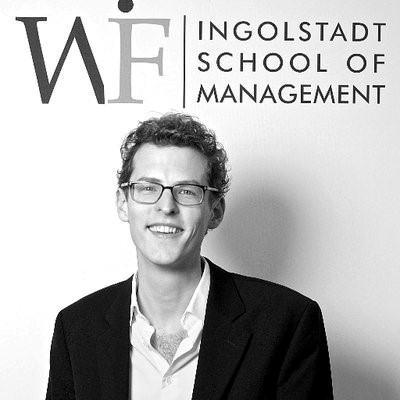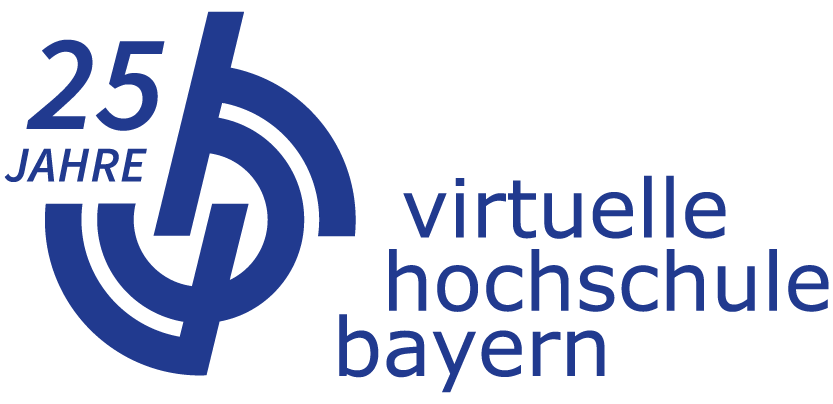Industry 4.0: Aspects of Human Resources Management (InnoPeer AVM Advanced Training)
Industry 4.0: Aspects of Human Resources Management (InnoPeer AVM Advanced Training)
| Course offered by: | Prof. Dr. Stephan Kaiser | ||
| Offering University: | UniBw München | ||
| Course Language: | English | ||
| Subject Area: | Economic Sciences | Free of Charge | |
| Average Workload: | 5 hours | Free of Charge | Enrol |
| Picture Credits: Interreg CENTRAL EUROPE Programme | |||
What can you learn in this course?
This course provides comprehensive knowledge in the fields of Human Resources Management in the context of Industrie 4.0. The following educational objectives are specifically focused on:
- The differences between a traditional personnel management and an innovative HRM understanding
- Work designs aiming at execution and work designs aiming at high performance and creativity
- The role of leadership for changes towards Advanced Manufacturing
- The role of individual competencies and learning for changes towards Advanced Manufacturing
Outline
This course is structured into the following five chapters:
- Introduction and organisational information
- Traditional vs. innovative human resources management
- Execution work systems vs. high performance work systems
- Leadership for change
- Individual competencies and learning
Course offered by
Prof. Stephan Kaiser is chairman of the Institute for the Development of Sustainable Organisations and holds the chair for Human Resources Management and Organization Studies at the Bundeswehr University Munich.
Further authors

Dr. Georg Loscher is a postdoctoral research fellow at the Chair of Human Resources Management and Organization Studies at the Bundeswehr University Munich, Germany. His research interests include practice theory, institutional complexity and professional service firms.

Anna-Lisa Schneider MSc is a doctoral research associate at the Chair of Human Resources Management and Organization Studies at the Bundeswehr University Munich. Her research interests include openness and practice theory.

Benjamin Krack MSc is a doctoral research associate at the Chair of Human Resources Management and Organization Studies at the Bundeswehr University Munich. His doctoral research focuses on the impacts of digitalisation on work practices in hospitals. As a former turnaround consultant he has practical experience in the restructuring of SMEs.
Federico Mentzel MSc is a research associate at the Chair of Human Resources Management and Organization Studies at the Bundeswehr University Munich, currently working as a member of the InnoPeer AVM project team.

Mag. Nina Gusenleitner MSc is specialised in organisational change processes and capability development in the context of digitalisation and Industry 4.0. She is scientific project manager for the InnoPeer AVM project at the Institute for Work Research and Work Policy at Johannes Kepler University Linz.

Sandra Siedl BA MA works at the Institute for Work Research and Work Policy at Johannes Kepler University Linz. Her research deals with the influence of technical assistance systems on UX (user experience) and technology acceptance. Moreover, she has scientific and practical expertise regarding the maintenance and promotion of employee workability in the context of digitalisation and Industry 4.0.

Hannah Perez BA is student assistant at the Institute for Work Research and Work Policy at Johannes Kepler University Linz. As part of her studies she specialised in Organisation and Innovation and is going to further pursue a post-graduate degree in General Management at Johannes Kepler University Linz.

Mag. Karin Hartinger works at the Institute for Work Research and Work Policy at Johannes Kepler University Linz. Her scientific and practical experience relates largely to the creation of suitable organisational and personnel frameworks for workers, with a special focus on technological change, such as the transition towards Industry 4.0 or digitisation.

Sándor Búzás has a master’s degree in economics and he is a certified coach and mediator. He co-published a book containing several volumes of interviews with entrepreneurs and received the NEOSYS business coach qualification in 2016. Since 2017, he is a certified High-Performance Coach from the High-Performance Institute in San Diego (first in Hungary).

Dr. Björn Schäfer is a post-doc researcher and lecturer at WFI Ingolstadt School of Management at Catholic University Eichstätt-Ingolstadt. He has several years of online and personal teaching experience in the fields of strategic management and human resource management on bachelor, master and MBA level. Björn’s research focus turned from retail management and professional service firms to innovation and business model management over time and he is always thrilled by new topics, methods and technologies.
Target group
It is recommended to have completed the Basic Training as part of the InnoPeer AVM qualification program or to have an increased interest in digitalisation, advanced manufacturing or related topics. The contents of the InnoPeer AVM courses, covering the various perspectives of technology coming with Industrie 4.0, but also the business perspective, are prepared at a high didactical level in order to enable as many interested users as possible to benefit from free orientation and further education in the constantly changing topic of Industrie 4.0. The target group includes both decision makers and users with different professional qualifications.
Confirmation of participation
Participants can download an automatically generated certificate of participation after they have successfully completed the course.
